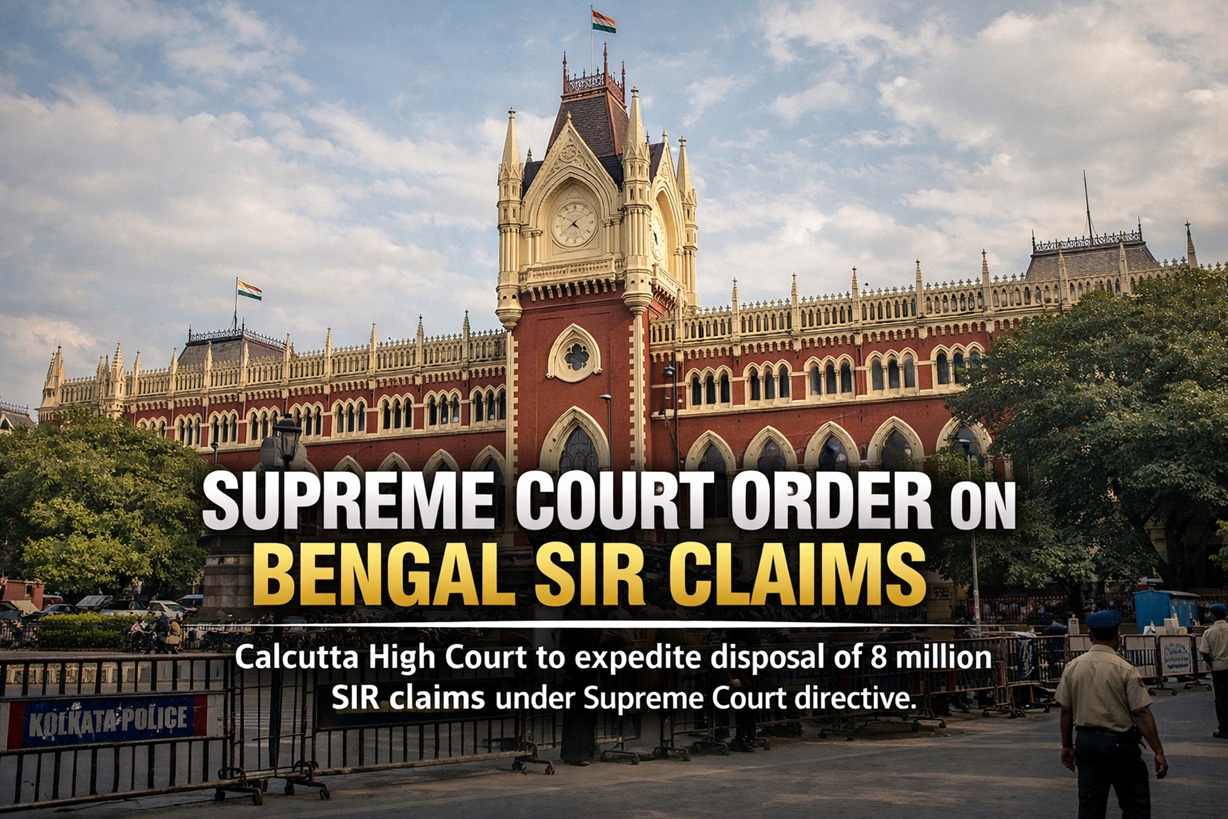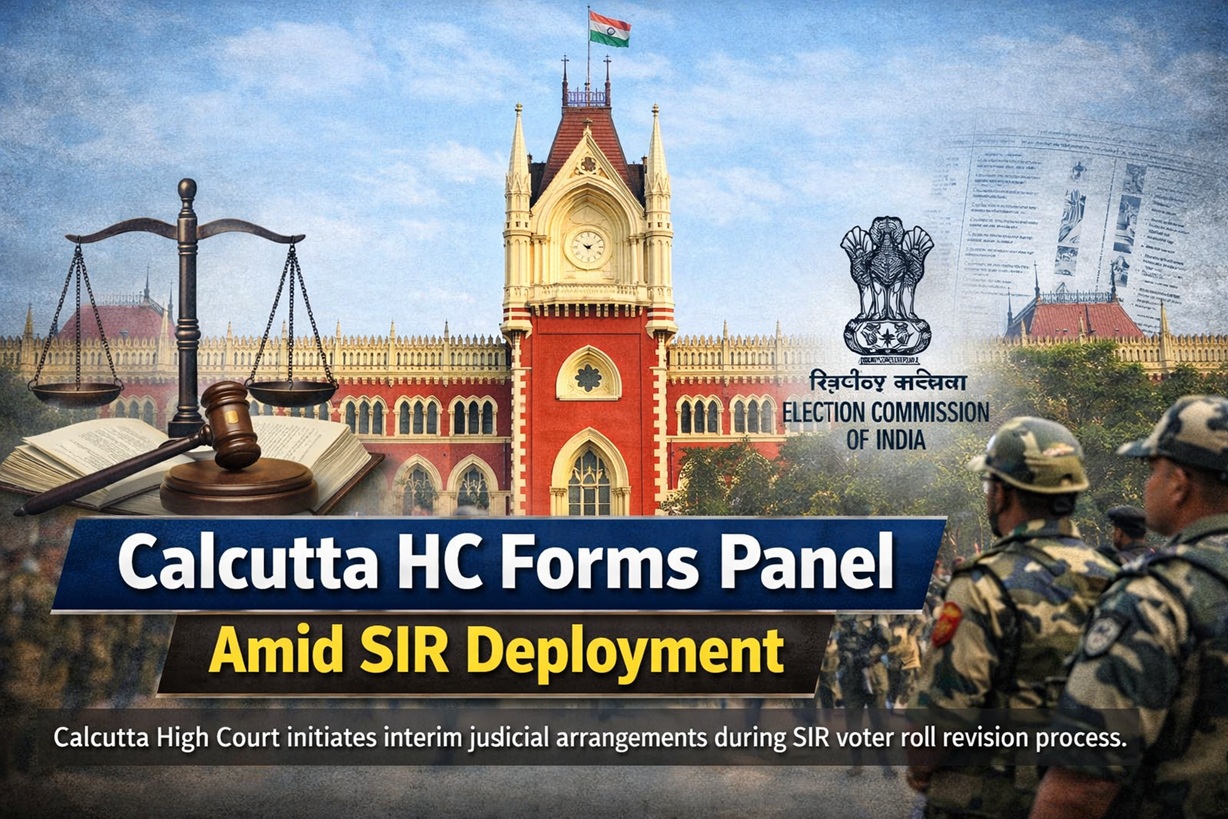As India gears up for pivotal assembly elections in Bihar, West Bengal, and Assam, the Election Commission of India (ECI) has launched a large-scale initiative—the SIR campaign (Systematic Investigation and Revision of Voter Lists). Marketed as a voter list update drive, the campaign has triggered an intense political row, with opposition parties uniting to challenge its timing, motives, and alleged discriminatory implementation.
What is the SIR Campaign?
The SIR campaign, initiated by the Election Commission, is aimed at weeding out ineligible and duplicate names from the voter rolls. The Commission argues that the objective is to ensure transparency, electoral integrity, and elimination of fake or fraudulent voters, particularly in regions with a history of alleged voter list manipulation.
Timing Under Scrutiny
The campaign’s launch just months ahead of elections in Bihar, and later in West Bengal and Assam, has set off alarm bells in opposition ranks. Critics argue that the timing is suspicious and potentially disruptive to the electoral process. Leaders from parties including Congress, TMC, RJD, DMK, and the Left have accused the EC of carrying out the campaign under political pressure from the ruling BJP.
Supreme Court’s Intervention
Adding a legal dimension to the controversy, several petitions were filed challenging the SIR campaign. On July 10, the Supreme Court heard the matter and cleared the air on what documentation is required for voter list correction and revision. The court ruled in favor of the Election Commission, allowing the campaign to proceed across India. The EC has since clarified that the SIR campaign does not determine citizenship—it merely ensures that only eligible citizens are enrolled to vote.
Document Confusion Resolved
One of the core issues has been confusion around documentation—what documents would be accepted, and whether Aadhaar would be enough. The court’s ruling clarified that no arbitrary document demands will be made, and the EC must follow lawful procedures. However, opposition leaders allege selective enforcement—with tougher scrutiny in minority-dominated areas while Hindu-majority areas face little resistance.
The Infiltration Angle
The campaign has gained added intensity because of its focus on border states and districts with high migration, especially from Bangladesh and Myanmar. Government data and intelligence reports have repeatedly highlighted the presence of illegal migrants, including Rohingyas and Bangladeshi nationals, in districts of Bengal, Assam, and parts of Bihar and Delhi-NCR.
BJP leaders argue that the presence of such voters distorts electoral outcomes and that SIR is a corrective mechanism. Several BJP-aligned commentators have claimed that as many as 2 crore illegal entries could be removed nationally—concentrated in districts that have shown strong anti-BJP voting patterns in past elections.
Political Reactions: Fireworks from All Sides
Congress MPs, including senior lawyer-leaders, have addressed press conferences condemning the campaign. TMC, RJD, and other regional players have called the move unconstitutional, arbitrary, and politically motivated. Opposition voices say this is an attempt to disenfranchise minority communities, especially Muslims, by labelling them “outsiders” or “illegal immigrants”.
In response, BJP supporters and right-wing voices have hit back hard—accusing the opposition of shielding illegal voters for political gain, creating a “Dharamshala” out of India, and undermining electoral sanctity.
Notably, Yogendra Yadav and other civil society figures critical of the campaign have been labelled “Congress mouthpieces” by pro-government media and influencers.
Citizenship vs. Voter Eligibility: A Legal Gray Zone?
One of the central legal debates is over whether the Election Commission has the authority to decide citizenship while updating voter rolls. The EC maintains that it only verifies voter eligibility under the Representation of the People Act, while citizenship determination remains the domain of the Ministry of Home Affairs.
Still, critics argue that the SIR campaign’s execution often blurs this line, especially when applicants are asked to produce documents like parental birth certificates or land records—demands that disproportionately affect poor, marginalized, and migrant populations.
From Local Drive to National Rollout
Following the Supreme Court’s green light, the EC is now preparing to roll out the campaign nationally. This includes states where infiltration concerns are prominent, like Uttar Pradesh, Delhi, Maharashtra, and Karnataka. Gujarat has already seen a crackdown on Bangladeshi migrants, prompting large-scale movement to other states, including Congress-ruled Karnataka.
Reports have emerged of sudden demographic shifts—new mosques, slum clusters, and rapidly growing migrant settlements in states like Himachal Pradesh and Uttarakhand, sparking communal unease.
Communal Undertones and Media Frenzy
The political narrative around the SIR campaign has acquired unmistakable communal overtones. Muslim voters are being portrayed—especially in right-wing discourse—as potential infiltrators. There’s been a sharp rise in inflammatory rhetoric around Bangladeshi women working as maids, Rohingyas in Delhi and Jammu, and even religious conversions tied to demographic change.
Some media outlets have amplified claims that fake voter IDs and Aadhaar cards are rampant among illegal migrants—often citing unverifiable “intelligence reports” to justify voter list purges.
Credibility of the Election Commission Under Fire
While the EC maintains it is only fulfilling its constitutional duty, opposition parties have pointed to past instances of alleged bias, particularly in recent state and national elections. Many have called the SIR campaign another example of institutional capture, undermining the EC’s impartiality and threatening India’s democratic framework.
Why Opposition is Nervous
At the heart of the opposition’s panic is the fear of electoral loss—if lakhs of names are struck off the rolls in districts they rely on for votes. In West Bengal, Assam, and parts of Bihar, minority votes form the bedrock of opposition electoral strength. If the SIR drive indeed deletes large numbers of these votes, it could alter the outcome in dozens of constituencies.
The opposition claims this is targeted voter suppression, while the BJP insists it’s electoral hygiene long overdue.
Conclusion
The Election Commission’s SIR campaign has opened up a volatile debate that cuts across electoral integrity, citizenship rights, national security, and communal identity. With the Supreme Court’s approval, the EC has the legal mandate to proceed—but the political battle has only just begun. Whether the campaign ensures fairer elections or triggers deeper divisions will be determined in the coming months, as India heads into another high-stakes electoral cycle.
#VoterListUpdate #SIRCampaig #ElectionCommission #SupremeCourtIndia #BiharPolitics #indiabloc #voterlistrevision #mahagathbandhanprotest #biharelections #oppositionmarch #electioncommission #biharelections #biharelection2025 #rjd #congress #biharpolitics #indiaalliance #voterlist #biharassemblyelections #mahagathbandhan,






